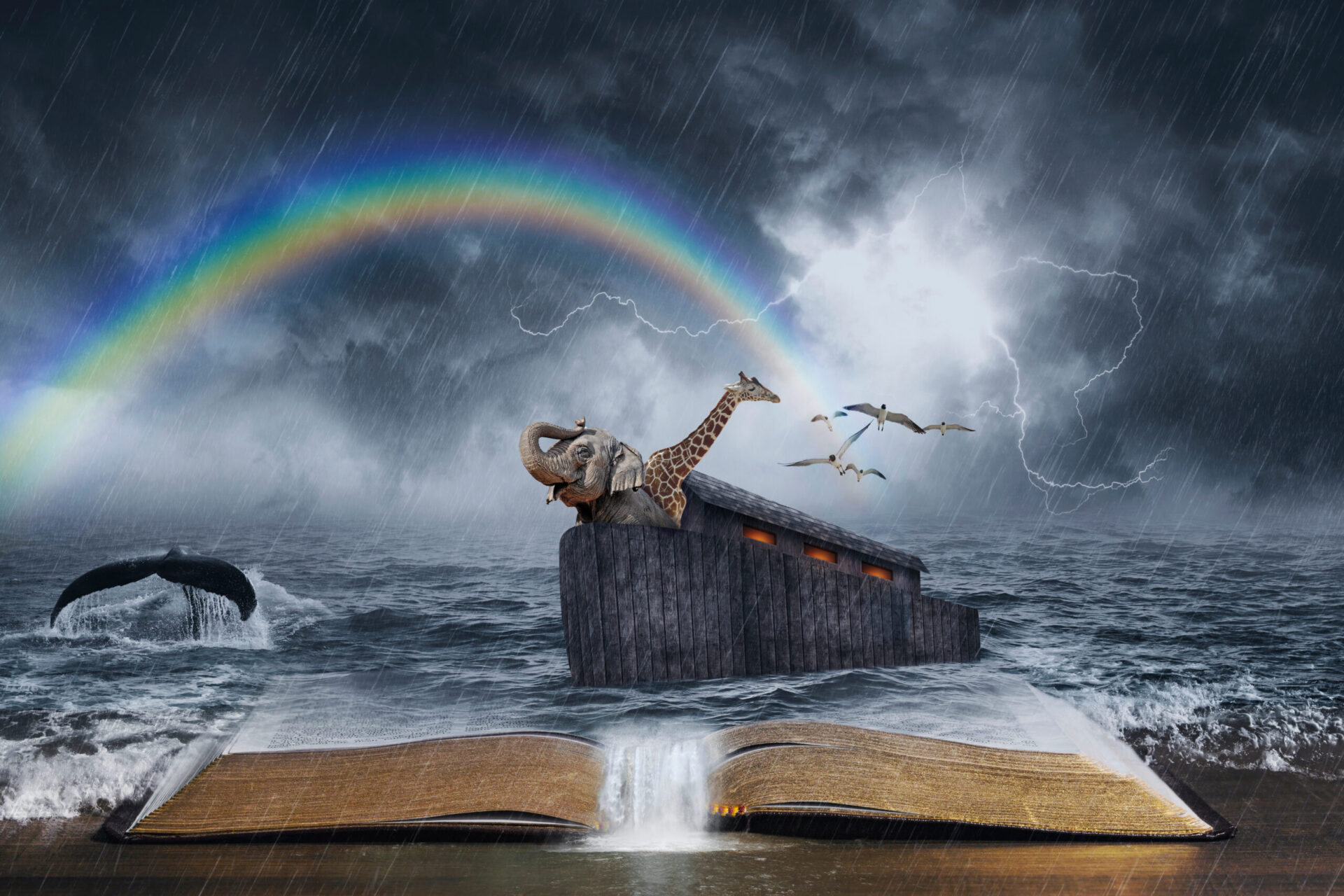Noah and the flood is one of the most well-known stories of the Old Testament. However, this story, for many causes doubts to rise about the very nature of God. How could a God who is willing to destroy the entire planet and every living thing on it be just and merciful? To truly understand God’s purpose for the flood, we must understand the condition of the world at that time.
Sunk in Sin
God had commanded Adam and Eve to be fruitful and multiply (Genesis 1:28). In that, they were obedient. As mankind began to increase on the earth, so did their depravity. In Genesis 1:31, right before God rested from His work, He looked upon His creation and “saw that it was very good” (Genesis 1:31). Yet, ten generations later, His view of creation was vastly different: He “saw how great the wickedness of the human race had become on the earth, and that every inclination of the thoughts of the human heart was only evil all the time” (Genesis 6:5).
With the flood, God was, in essence, “de-creating” the earth. The earth at first was formless and void, water covered its surface, and the Spirit of God hovered over the waters (Genesis 1:1). There was no dry land until God gathered the water into one place, and land appeared (Genesis 1:9). God’s purpose for the flood was not to destroy His creation but to recreate it through Noah.
Flood of Judgment

Noah found favor with God (Genesis 6:8). Because of this favor, God tells Noah that He will provide refuge from the rising waters through an ark that Noah is to build. God gives Noah specific instructions on what this ark should look like (Genesis 6:14-16). He tells Noah who and what to bring onto the ark (Genesis 6:13-21). Noah, in obedience to God, “did everything just as God commanded him” (Genesis 6:22).
God was patient with humankind. He gave them time to repent. During the 120 years that it took Noah to complete the ark, Noah did all he could to warn them of God’s approaching judgment (2 Peter 2:5).
People ignored Noah’s warning, however. They were too distracted by the things of the world to heed his admonition; they were “enjoying banquets and parties and weddings right up to the time Noah entered his boat” (Matthew 24:38). However, Noah did not let the world drown out God’s voice; he was not distracted or deterred by the pull of the culture surrounding him. Instead, he focused on the work God gave him to do.
Flood of Faith
Hebrews 11:7 tells us that Noah’s faith saved him: “By faith Noah, when warned about things not yet seen, in holy fear built an ark to save his family. By his faith, he condemned the world and became heir of the righteousness that is in keeping with faith.”
People say, “there is no way I would have been good enough to make it on that boat like Noah.” That is true; no one would have made it on the ark based on their goodness. Even Noah didn’t earn his way on the ark; instead, God gave him grace because of his great faith.
Just like God was the architect of the ark, He is also the architect of our salvation. God began to reveal His plans to mankind in the Garden of Eden when He promised that the Seed of a woman would crush Satan. Then through Noah, He showed us a picture of salvation.
Our story today is not unlike the story of Noah and the Flood. We are also sinking in sin. But just like God provided Noah a way out, He provides us a life-vest too. As Noah did, we must drown out the call of the world and singularly focus on the One who provides our means of escape. When we put our faith in God’s word and trust Hs chosen refuge, we too escape God’s just judgment and are saved.
Next time, in the Ark of Salvation, we will talk about how the ark is a picture or a type of Jesus.
For links to great resources on the Flood and Noah, visit Answers In Genesis.
Author
-
I am a truth seeker by nature. My passion is studying God's Word and sharing His Truth with others.
View all posts





One Response